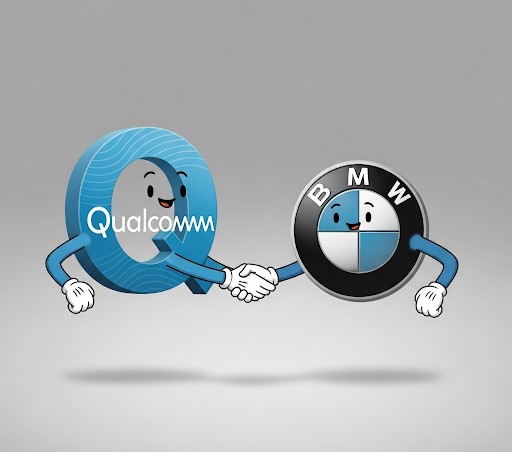Summary
Qualcomm (QCOM) has focused on its strategic expansion into the automotive and AI sectors, rather than on new financial results. The company recently announced a new automated driving system developed in partnership with BMW, and a separate collaboration with Google Cloud for in-car AI. These developments are significant for investors as they underscore Qualcomm’s ongoing diversification strategy, aiming to reduce its traditional reliance on the highly cyclical smartphone market. This diversification is a key element of the company’s long-term growth narrative and has been a central point of discussion among analysts.
The Core News (What Happened?
Qualcomm has made several recent announcements highlighting its push beyond its core mobile chip business. On September 5, 2025, Qualcomm and BMW Group unveiled a new automated driving system resulting from their multi-year partnership. Additionally, the company is broadening its collaboration with Google Cloud and Valeo to integrate AI-driven features into vehicles, aiming to transform them into “smart agents.” These announcements were made in the context of Qualcomm’s broader strategy to expand its footprint in high-growth areas like automotive and the Internet of Things (IoT).
Context & Expectations
Qualcomm’s recent fiscal Q3 2025 earnings report, which was released in late July, showed a mixed picture. While the company reported revenue and earnings per share that beat analyst estimates, its guidance for the following quarter was described as soft by some market observers, leading to a temporary decline in the stock price. The current news about partnerships with BMW and Google Cloud is consistent with Qualcomm’s publicly stated strategy to diversify its revenue streams. The market and analysts have been closely watching for concrete progress on this front, as it’s a critical factor in a bullish outlook for the company’s future growth.
Potential Implications (The Bull vs. Bear Case)
Potential Implications (The Bull vs. Bear Case

Bull Case: Optimistic analysts view the new automotive partnerships as validation of Qualcomm’s diversification strategy. For example, a report from Morningstar notes that while handset semiconductor sales saw a slight miss, the company’s overall diversification remains on track. The collaborations with a major automaker like BMW and tech giant Google signal that Qualcomm’s Snapdragon platform is gaining traction in the high-value automotive sector. This could lead to a more stable and higher-margin revenue mix over the long term, reducing dependency on the volatile smartphone market and potentially supporting a higher valuation. The company’s recent board appointment of an AI security expert also points to a focus on enhancing capabilities in this key area.

Bear Case: Conversely, some analysts express caution. A report from a source like Zacks mentions that a portion of the analyst community maintains a “Hold” rating on the stock, which may reflect a “wait-and-see” approach. The primary risk remains the ongoing volatility in the smartphone market and potential licensing challenges, such as an unresolved agreement with Huawei mentioned in an analysis by Public.com. These factors could still impact handset revenues and create headwinds for the company, potentially overshadowing the progress in newer segments. The long-term nature of automotive and IoT revenue streams means that significant financial returns from these ventures may take time to materialize, leaving the company exposed to the current challenges in the interim.
Key Data & Metrics
- Recent Stock Performance (as of Monday, Sep 8, 2025): Closing price of $160.28.
- Fiscal Q3 2025 Revenue: $10.4 billion, which was up 10% year-over-year.
- Fiscal Q3 2025 Earnings Per Share (EPS): $2.77, which was $0.06 better than the analyst estimate of $2.71.
- Consensus Analyst Rating: “Buy” based on 54 analyst ratings from sources like Public.com, with 69% of analysts recommending Strong Buy or Buy.
- 52-Week Range: $120.80 (low) to $182.10 (high).
Disclaimer:This article is for informational purposes only and does not constitute financial, investment, or legal advice. The information provided is a synthesis of publicly available data and expert analysis and should not be considered a recommendation to buy or sell any security. Investing in the stock market involves risk, including the possible loss of principal. Past performance is not indicative of future results. Readers should consult with a qualified financial advisor to determine an investment strategy that is suitable for their own personal financial situation and risk tolerance.






















